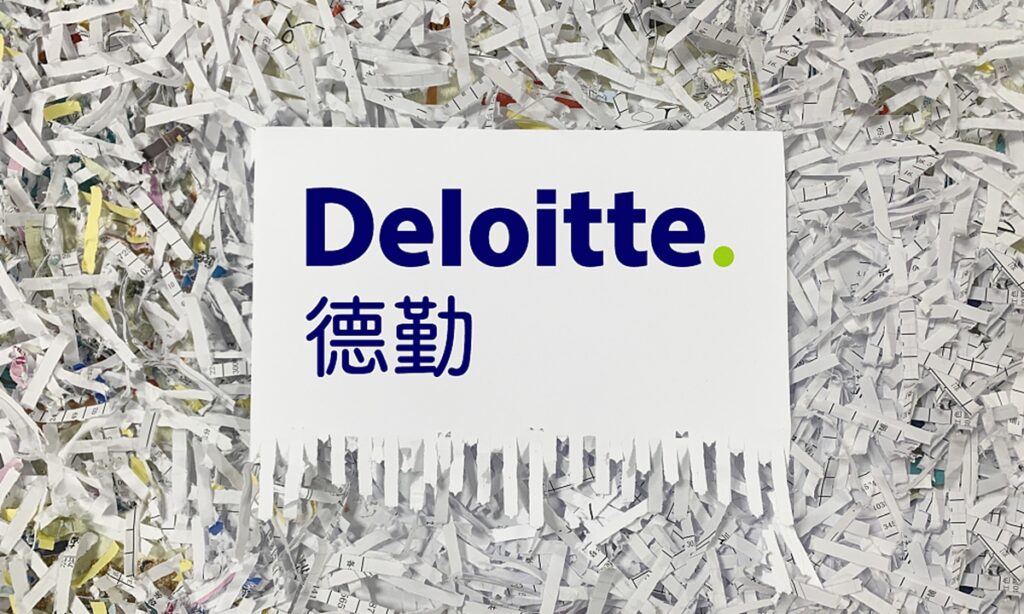Consulting firm Deloitte is in hot water in China after one of its employees reportedly made a 55-page PPT exposing the firm’s alleged accounting violations in China, including neglecting some of its clients’ abnormal financial spending and skipping auditing procedures.
According to the PPT, which has been circulating on China’s twitter-like Weibo, when Deloitte was auditing the financial data of its client RYB Education in 2017, a member of the auditing project told the whistleblower “not to be so careful and fill in the numbers randomly” when the latter questioned why many of the date and cash volume recorded in auditing working papers are not in line with the facts.
The member also confessed to have “fabricated” many such figures in past audits, the whistleblower said.
The whistleblower also disclosed that a Beijing training school under RYB Education had spent most of its management fees raising the children of the school’s senior executives in overseas countries, such as golf study fees. A partner at Deloitte noticed this, but chose to define the management fees as an unimportant and low-risk accounting title which required just a simple check, media reported, citing the whistleblower.
The informer disclosed that Deloitte’s partner had received beauty treatment cards worth tens of thousands of yuan from the client, according to media reports.
RYB Education had previously been reported to have given injections and drugs to toddlers in its Beijing nursery school a few years ago.
After being exposed for auditing flaws in China, Deloitte said in a statement that it had received complaints from an employee via internal channels and investigated them, but didn’t find any evidence affecting the adequacy of their work.”We will investigate any doubts we receive,” the company said.
Some Chinese netizens condemned the moves disclosed by the whistleblower as “financial fraud” that has “cheated stock investors.”
A senior auditor working in one of the “big four” auditing companies in Beijing said that it’s impossible for an external auditing is totally distort the company’s actual business, but it’s equally impossible for auditors to pay attention to every detail.
“Audit misstatements are not very common in our industry, as we are battling with our clients every day to get them to abide by accounting regulations,” the person told the Global Times.
Another employee who used to work for a famed international audit firm also told the Global Times that most managers and partners in the “big four” auditing companies wouldn’t cover up financial problems for their clients, because it carries too many risks.
He also noted that skipping certain auditing procedures is not an uncommon phenomenon, but it does not necessarily mean deliberate covering up of financial flaws.
Experts said that the regulators should increase punishment for auditing firms that trample upon laws.
“It’s very hard for regulators to detect such violations, and the cost of spot checks in advance is a bit too high. I think the government should increase fines for audit violations, so companies dare not evade the regulations,” Dong Dengxin, director of the Financial Securities Institute at Wuhan University of Science and Technology, told the Global Times, adding that regulators should also urge companies to toughen supervision of their employees’ professional ethnics.
Deloitte Photo:VCG




